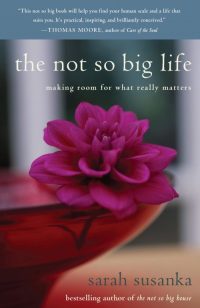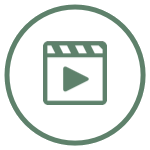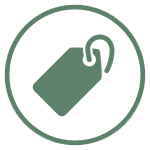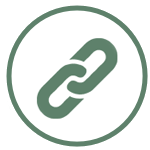How to Be at Home in Your Life
What does it mean to you to be at home in your life?
For me it means to be aware in each moment of what’s actually happening at the same time that I’m engaged in all the storylines going on. When I turn my computer on, there will be many things that I need to do—I’m working on two new house projects, I’m teaching many students right now, I’m writing—all these things that happen through this little screen with an apple on it! But I don’t forget, in those interactions, what’s really happening here—that I’m at home in my center while I’m playing all those roles.
If something feels too much, I can turn the screen off for a few minutes, go meditate, come back, and it’s not the end of the world. There are human beings I can call and say, “You know, I said I would do this tomorrow, but the reality is I really can’t. Can we talk about what we would have to do to give me another 24 hours on it?” So it’s really building your own experiencing right into the picture of all of life’s demands. And I think we often forget that. That’s what I mean by being at home. It’s really being aware of all that’s happening, and being able to respond without believing all the storylines as absolutes.
For example, yesterday I ended up having an hour-long talk in the middle of the day with someone. This is an incredibly busy time, and the talk was unscheduled, but it was happening, and some amazingly important things became clear in that conversation because we were able to just be there with each other. That’s being at home in your life—where you don’t have to follow exactly the plan that you thought you needed to hold to because that’s not actually what was happening.

What if you have a tendency to be pulled off track by things like that all the time?
The medicine is different for each of us. For those who always let go of the plan, then it’s staying focused on the plan that will teach you. For those who always live by the plan or the to-do list, I would encourage you to put your list away and not look at it for the rest of the week! You’ll be amazed to discover that you still get most of the things done, but not in the sequence that you thought was necessary, and the unnecessary ones fall by the wayside, without any effort or planning. So, the medicine is specific to each individual’s patterns—to those patterns that are keeping you in prison.
This is what I’m so passionate about these days—helping people see how they’ve made their own prison and how to confront it by doing something completely different, something their personality structure will absolutely reject or rebel against. It will change your life when you move toward things where your personality structure says, “Absolutely not!” Not something dangerous of course, but something that contradicts a firmly held belief. It’s like walking through a wall you’ve always believed was permanent and solid, but you now discover is not real.
How can we all learn to be at home in our own lives?
The first step is to become an observer of your life. Become like a lab tech or an investigator, watching this person (that’s you) and everything they do. What time do they get up, eat breakfast, go to work? When do they tend to argue with their spouse, and what’s the typical catalyst? What do they say to their kids, and what happens when they do this?
You don’t try to stop what’s happening, you just notice what happens. Being one step removed from it all allows you to start to recognize your patterns without getting involved in the right and wrong of anything.
When you don’t have an agenda to fix yourself, and you’re just watching your life as if it’s an experiment, you begin to see that it’s all just patterns, and that alone can shift so many of your beliefs about yourself. You can then say, “If I were to eat breakfast in this room rather than that room, I wonder what might be different?” Or “If I tell my spouse what I’m experiencing, rather than stuffing it, what happens then?” It all becomes an experiment, with no one defending or projecting how it should be.
We’re so used to judging others, or ourselves. How can we become more curious and less judgmental?
 If I could have people cultivate one habit, it would be to have curiosity about their patterns rather than judging them or wanting to defend them. It’s the defense and the resistance to looking at them objectively that is the hardest obstacle to overcome. Judgment keeps a lid on anything else coming into awareness. As soon as a judgment arises, it shuts down that curiosity. It shuts down that ability to truly observe without a preference.
If I could have people cultivate one habit, it would be to have curiosity about their patterns rather than judging them or wanting to defend them. It’s the defense and the resistance to looking at them objectively that is the hardest obstacle to overcome. Judgment keeps a lid on anything else coming into awareness. As soon as a judgment arises, it shuts down that curiosity. It shuts down that ability to truly observe without a preference.
The first thing you need to do is become aware of when a judgment is happening. A judgment is just a thought. It doesn’t have any meaning. It feels like it does, but actually it’s just a habitual thought rut. If you can start to observe, “Ah, there’s a judgment,” you can start to let it go, just like you let go of a thought in meditation. Then you can ask, “What else is here?”
Sometimes you can see what caused the judgment—the underlying beliefs or fears or ideas of right and wrong that you were taught when you were very young. It’s important to learn to recognize what the fears are that are driving your particular personality structure because they’re not true. They are just misunderstandings that happened, usually when we were tiny, and you’ll live them until your dying day unless you learn some of these techniques to observe and recognize: “What is it that’s going on here that is making me believe that I’m wrong or bad, or that others are wrong or bad?”
It’s critical to remember that you are just awareness having an experience of being human, of being you. Awareness has no position; it simply witnesses what’s happening. That’s the truth of who you are, prior to any programming or preference, belief or fear. It’s very easy to forget this in the midst of all the challenges of daily life, but this observing of ourselves is a first step in coming to live ever more of this truth.
Note: This article was adapted from a 2018 interview with writer and editor Jenn Brown.
Need help discovering how to be at home in your own life? Join me for the Introductory Not So Big Life Workshop. See below for details and more information.
 Workshop Details
Workshop Details
The next Introductory Not So Big Life Workshop will take place Thursday, August 29 – Saturday, August 31, 2024, online via Zoom.
Or sign up now to be notified when registration opens.



